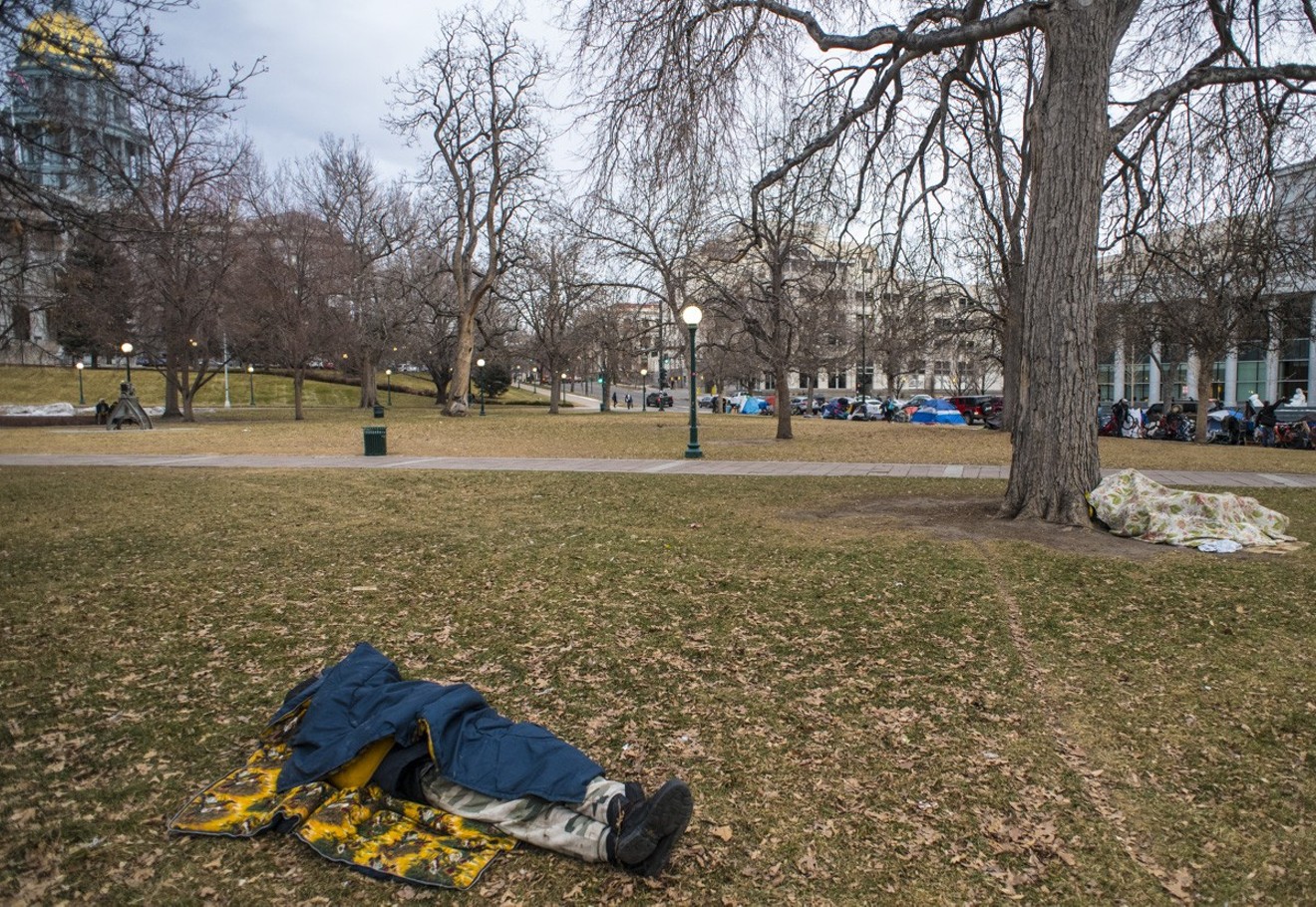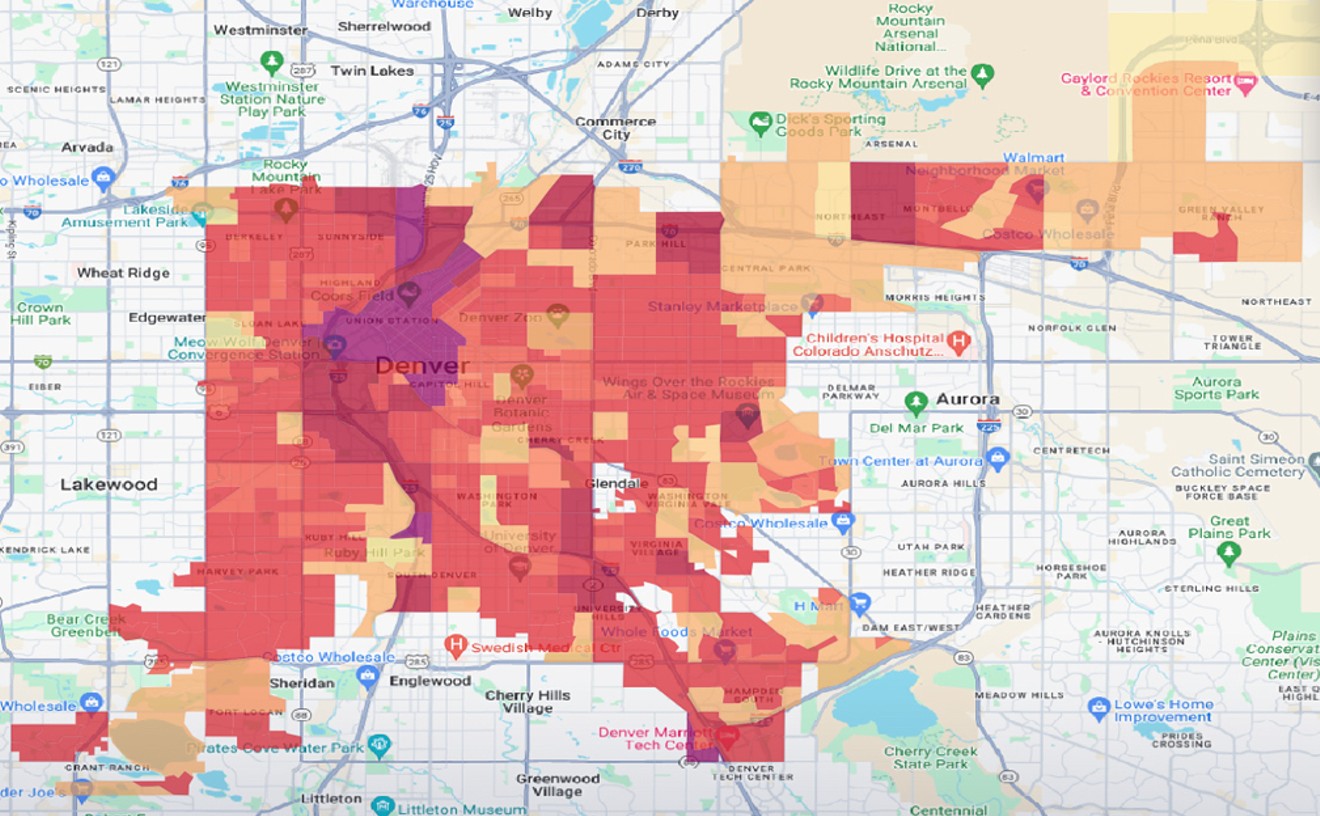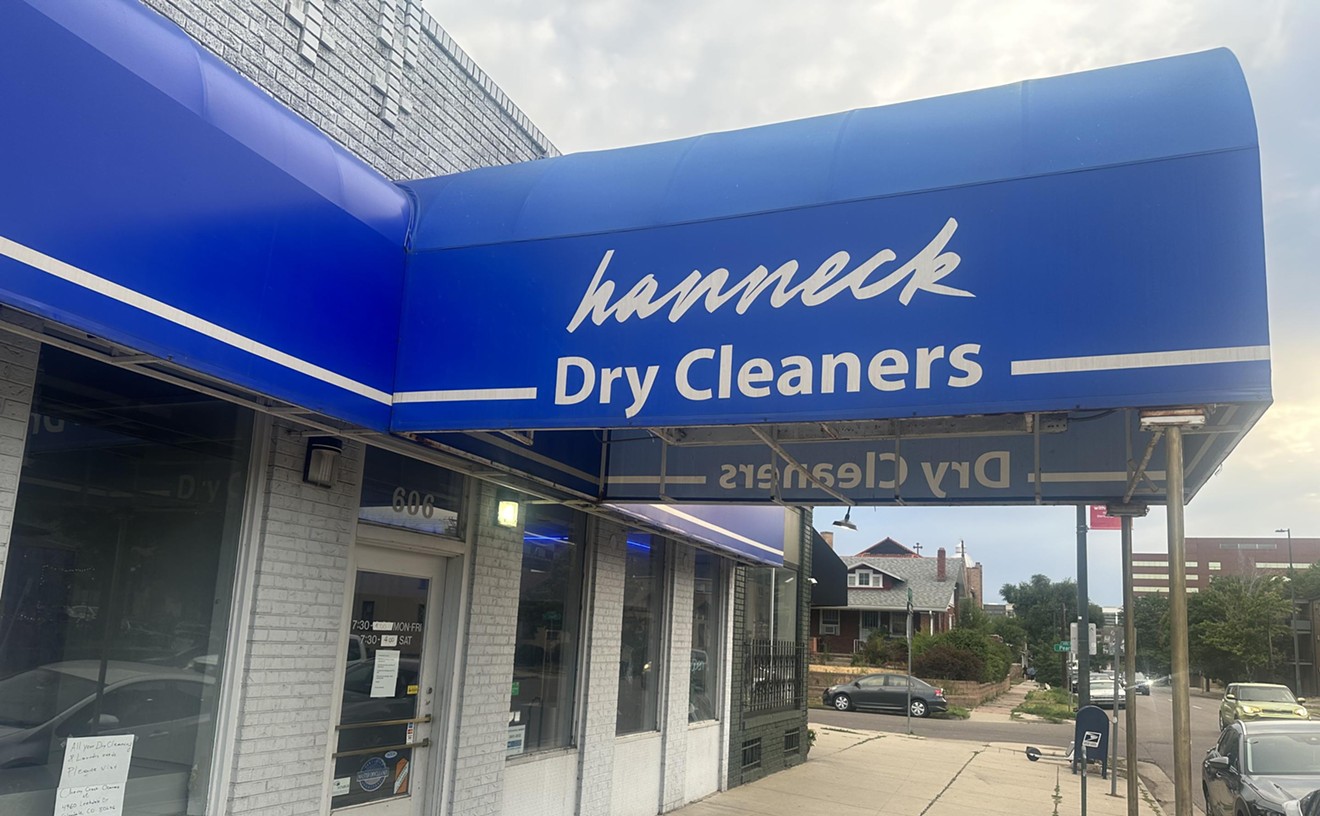New data released by local service providers indicates that homelessness numbers were up in metro Denver even before the coronavirus pandemic devastated the economy and destabilized living situations.
"It’s an important thing for everyone to keep in mind that homelessness was a crisis before the COVID crisis," says Matt Meyer, executive director of the Metro Denver Homeless Initiative. "The COVID crisis has put it into starker relief and made it even more urgent. And we’re not yet sure how much worse it’s going to be as a result."
The Metro Denver Homeless Initiative just released its 2020 Point in Time Count, an annual survey that attempts to document the number of individuals experiencing homelessness in the metro area. This year's Point in Time Count, conducted in January, identified 6,104 homeless individuals either staying in shelters or living in unsheltered settings in Denver, Jefferson, Douglas, Adams, Arapahoe, Broomfield and Boulder counties. Of the total counted, 4,171 were in Denver.
"We saw an increase this year for the metro region of 6 percent. Prior to that, the year before, we saw a 12 percent increase in the region," Meyer explains. "I’m unhappy about seeing an increase, and that’s not the direction we want to be going in, but we do believe we’re having an impact because we’re seeing the rate of increase decrease."
But as with last year's count, this one saw a disproportionate representation of African Americans and Native Americans: about four times what would be expected from raw population numbers. "I think it’s hard to understand homelessness without acknowledging the racial component that there’s a systemic racism that contributes to the homelessness issue, not just in Denver, but nationally," Meyer says. "That’s consistent with what we saw coming out of the George Floyd protests that emerged. This is an element and an aspect of that; frustration in the community."
And there are other challenges. According to Cathy Alderman of the Colorado Coalition for the Homeless, while the data is a good snapshot of the situation in the metro area, it represents a "drastic undercount," she says.
"It’s certainly not comprehensive, because it does not include people who are in motels, who are doubled up, who are sleeping in cars, or didn’t want to answer the survey," she notes.
As COVID-19 hit, the City of Denver partnered with homeless service providers to open large, temporary, 24/7 shelters at the National Western Center and the Denver Coliseum. Over 3,000 unique individuals have stayed there at various times over the past several months.
"That gives us some clue as to the fact that, if more people are seeking shelter, that means that there are probably more people who have entered the cycle of homelessness," Alderman says.
At those shelters, however, people have been introduced to services that they might not have encountered before, which could help them move to permanent housing.
"I’m encouraged by what we’ve seen in Denver as the COVID crisis has accelerated the 24/7 sheltering plan, and I think that that’s been beneficial," Meyer says. "That’s a strong step in the right direction. We need to be doing more of that and providing more opportunities to be able to exit from that."
And the need is undeniably growing. Even before the eviction moratorium ended last month, homeless encampments were growing around the city, especially in Capitol Hill and Five Points. According to guidelines from the Centers for Disease Control and Prevention, municipalities should not clear out these encampments during the pandemic because displacing individuals experiencing homelessness could put them or others at risk of contracting COVID-19. The City of Denver, which had been sweeping encampments before the virus hit, has taken a split approach to the issue during the pandemic: Sometimes it asks people to dismantle their tents and leave, while at other times it allows those at encampments to return after the cleaning.
But now the Hancock administration has given the green light to service providers who want to establish two or three temporary safe camping sites that will each be able to hold up to fifty individuals. The sites will have hand-washing stations and bathrooms, and will be staffed 24/7 by service providers.
The selection of the first site appears imminent.
"We are close to a license agreement on a site that we can’t talk about yet because we’re going to have some conversations with neighbors," Mayor Michael Hancock said during a July 15 press conference.
Some members of Denver City Council and the Hancock administration are advocating a .25 percent sales tax increase as a November ballot measure; if passed, the revenue from the tax would go toward a dedicated fund for homeless services.
[
{
"name": "Air - MediumRectangle - Inline Content - Mobile Display Size",
"component": "12017618",
"insertPoint": "2",
"requiredCountToDisplay": "2",
"watchElement": ".fdn-content-body",
"astAdList": [
{
"adType": "rectangle",
"displayTargets": "mobile"
}
]
},{
"name": "Editor Picks",
"component": "17242653",
"insertPoint": "4",
"requiredCountToDisplay": "1",
"watchElement": ".fdn-content-body",
"astAdList": [
{
"adType": "rectangle",
"displayTargets": "desktop|tablet"
},{
"adType": "rectangle",
"displayTargets": "desktop|tablet|mobile"
}
]
},{
"name": "Inline Links",
"component": "18838239",
"insertPoint": "8th",
"startingPoint": 8,
"requiredCountToDisplay": "7",
"maxInsertions": 25
},{
"name": "Air - MediumRectangle - Combo - Inline Content",
"component": "17261320",
"insertPoint": "8th",
"startingPoint": 8,
"requiredCountToDisplay": "7",
"maxInsertions": 25,
"watchElement": ".fdn-content-body",
"astAdList": [
{
"adType": "rectangle",
"displayTargets": "desktop|tablet"
},{
"adType": "rectangle",
"displayTargets": "desktop|tablet|mobile"
}
]
},{
"name": "Inline Links",
"component": "18838239",
"insertPoint": "8th",
"startingPoint": 12,
"requiredCountToDisplay": "11",
"maxInsertions": 25
},{
"name": "Air - Leaderboard Tower - Combo - Inline Content",
"component": "17261321",
"insertPoint": "8th",
"startingPoint": 12,
"requiredCountToDisplay": "11",
"maxInsertions": 25,
"watchElement": ".fdn-content-body",
"astAdList": [
{
"adType": "leaderboardInlineContent",
"displayTargets": "desktop|tablet"
},{
"adType": "tower",
"displayTargets": "mobile"
}
]
}
]












